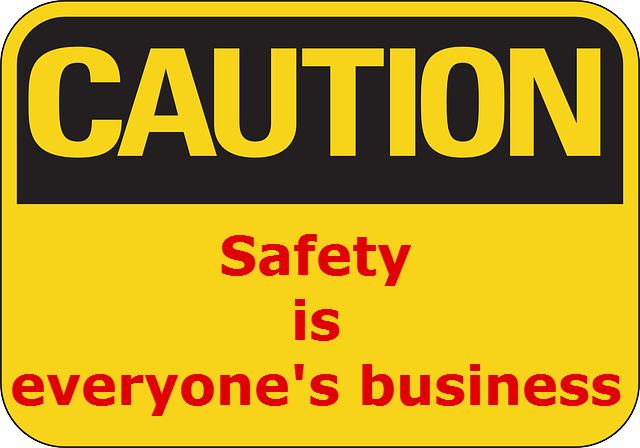 I am a CPA. Yes, a bean-counter who is supposed to spend his life in the Nerdery, balancing debits and credits, footing and cross-footing. My brother Russ likes to say, “There is nothing wrong with an accountant that a personality wouldn’t fix.”
I am a CPA. Yes, a bean-counter who is supposed to spend his life in the Nerdery, balancing debits and credits, footing and cross-footing. My brother Russ likes to say, “There is nothing wrong with an accountant that a personality wouldn’t fix.”
Nevertheless, even an accountant can see how a company really makes money if he keeps his antennae up. Money is not made in the back room balancing the general ledger. The profitability of a business is dependent on the physical, intellectual and emotional abilities of each employee and the collective workforce. After all, a business can only exist if there are people to operate it and a business can only thrive if it keeps its best employees.
This concept should not come as a surprise to anyone who has run a successful business. However, an executive of a very profitable company once told me, “This would be a great business if it weren’t for the people.” Lucky for that company, there were other managers that did not share his opinion. They understood that it was the people that make a great business.
The key people in making a great business are the leaders. Leaders set the tone of the company and establish the corporate culture. Exceptional leaders are those who model the behavior they want rather than just preaching about it. Leadership is the first criteria of The Malcolm Baldrige National Quality Award, an award established by Congress to recognize U.S. organizations for their achievements in quality and performance.
Being a leader doesn’t require a title. I have known receptionists who are leaders in the companies they work for because of how well they treat employees and customers. Following that thought to its logical conclusion, every employee can be a leader. These blog posts, however, are focused on leaders and managers who have the responsibility of directing the work of fellow employees.
Having worked in management positions for over 30 years in oil refining, construction, consulting, electrical generation, manufacturing, agriculture and health care, I can unequivocally state that any company can improve the bottom line when leadership values the employees and fosters a culture that nurtures talent. It does not matter what type of business, every successful business is dependent on good employees who are led by good leaders. The Baldrige Award criteria support this observation.
Not only are companies that take care of their employees more productive and profitable, they are a better place to work for both employees and their bosses. Considering that we spend about a quarter of our working lives, about 80,000 hours, at the workplace, an enjoyable workplace should be important to everyone.
Volumes have been written on workplace productivity and thousands of studies have been done on hundreds of management theories. Sorting through them all to find the key elements would be a monumental task and would overload the typical reader. In my opinion, the following Ten Best Practices of Exceptional Leaders probably captures 90% of what has been proven and, what is more important, the reader will intuitively know what is true through their own experience.
10 Best Practices of Exceptional Leaders
- Do What Is Right
- Be Positive
- Keep Your Ego in Check
- Eliminate Contention in Your Workforce
- Promote a Fertile Work Environment
- Train Employees and Encourage Learning
- Nurture Your Employees
- Reward Your Employees Fairly
- Create a Safe and Pleasant Workplace
- Discipline With Clarity and Compassion
These best practices are not intended to replace a Human Resource manual or the corporate attorney. Their purpose is to focus employees and their managers on how to improve their workplace.
Each of these practices will be explored in depth in subsequent articles. The articles will teach how and why leaders who lead with the heart can dramatically improve the work environment.
When managers ignore these practices, they are punished with high turnover, negative budget variances and increased workplace stress. On the other hand, when managers employ these practices, the workplace is rewarded with more satisfaction, productivity and profitability.


 Just because you can fire someone with a smile on your face and without raising your voice, doesn’t mean that you know how to properly discipline your workforce. “The Wizard of Westwood” said, “A coach is someone who can give correction without causing resentment.” Those are words one of the best coaches of all time, John Wooden. John Wooden won 10 NCAA national championships and is the former UCLA faculty member that I admire most, and I don’t even enjoy watching basketball.
Just because you can fire someone with a smile on your face and without raising your voice, doesn’t mean that you know how to properly discipline your workforce. “The Wizard of Westwood” said, “A coach is someone who can give correction without causing resentment.” Those are words one of the best coaches of all time, John Wooden. John Wooden won 10 NCAA national championships and is the former UCLA faculty member that I admire most, and I don’t even enjoy watching basketball. 
 “The secret of success is sincerity. Once you can fake that, you’ve got it made.” -Jean Giraudoux
“The secret of success is sincerity. Once you can fake that, you’ve got it made.” -Jean Giraudoux “People will forget what you said, people will forget what you did, but people will never forget how you made them feel.” – Maya Angelou
“People will forget what you said, people will forget what you did, but people will never forget how you made them feel.” – Maya Angelou As Sergeant Stryker (John Wayne) said in The Sands of Iwo Jima, “Life is tough, but it’s even tougher if you’re stupid.” It is harsh language but the concept rings true. The good news is that employees can overcome workplace stupidity if they are given proper training and they are committed to learn.
As Sergeant Stryker (John Wayne) said in The Sands of Iwo Jima, “Life is tough, but it’s even tougher if you’re stupid.” It is harsh language but the concept rings true. The good news is that employees can overcome workplace stupidity if they are given proper training and they are committed to learn. Most of us know the Golden Rule or, if you are a philosopher, the Ethic of Reciprocity. “Do to others as you want them to do to you.” Or, speak to others as you want them to speak to you. Or, help others like you want them to help you. You don’t have to be a philosopher, however, to understand that working well with others is a good way to have others want to work with you. A workplace where all employees, including managers, treat each other as they would like to be treated is a fertile work environment, where productivity and employee satisfaction grows.
Most of us know the Golden Rule or, if you are a philosopher, the Ethic of Reciprocity. “Do to others as you want them to do to you.” Or, speak to others as you want them to speak to you. Or, help others like you want them to help you. You don’t have to be a philosopher, however, to understand that working well with others is a good way to have others want to work with you. A workplace where all employees, including managers, treat each other as they would like to be treated is a fertile work environment, where productivity and employee satisfaction grows. Apparently, many non-mechanics are spending way too much time under the bus. At least that is what I must assume after being in so many workplaces and hearing, “She threw me under the bus.” Being “thrown under a bus” is just a figurative way of saying that someone is putting another in a difficult situation to make themselves look better. This type of office politics is motivated by unhealthy competitiveness and egotism.
Apparently, many non-mechanics are spending way too much time under the bus. At least that is what I must assume after being in so many workplaces and hearing, “She threw me under the bus.” Being “thrown under a bus” is just a figurative way of saying that someone is putting another in a difficult situation to make themselves look better. This type of office politics is motivated by unhealthy competitiveness and egotism. A lot can be learned from the ancient Greeks about ego and success. Even though the gods in Greek mythology were often quite capricious and vengeful, the myths teach valuable leadership principles. Apparently, human nature
A lot can be learned from the ancient Greeks about ego and success. Even though the gods in Greek mythology were often quite capricious and vengeful, the myths teach valuable leadership principles. Apparently, human nature 